Restorative Dentistry
Restorative Dentistry
Overview
Restorative dentistry may be one of the best investments you can make if you have missing teeth or are experiencing areas of damage to your smile. We are happy to help you find a solution for improving your smile. Restorative dentistry services can minimize many of the problems you have while also providing you with a smile you will love. We offer several treatments such as tooth-colored fillings, porcelain crowns, bridges, and root canals that will help restore and improve the overall functionality and health of your smile. We are happy to also provide options for missing teeth. Implants are a great alternative for natural teeth replacement. Strong and stable, they can restore a lost tooth and can look, feel, fit and function like a natural tooth. We will be happy to meet with you and will determine whether you are a good candidate for dental implants. If you have several missing teeth, no problem. We also offer implant bridges and implant dentures (fixed and removable). We will be happy to address your concerns and will offer a personalized treatment plan to fit your needs.
Full Mouth Reconstruction
Full mouth reconstruction involves one or several restorative dental procedures to restore and replace the teeth in a person's mouth. People with multiple oral health issues such as tooth decay, missing teeth or damaged teeth may benefit from full mouth reconstruction. No matter the cause, people will find it incredibly challenging to live without a full set of functional teeth. Fortunately, we can use full mouth reconstruction to restore both the functionality and appearance of teeth. Instead of only focusing on one aspect of the mouth, Affordable Smiles can help address multiple aspects. Along with ensuring that the teeth are customized to fit each patient's unique needs, we will replace missing teeth to create a uniform smile. This way, they can enjoy the benefits of a functional and sturdy set of teeth that also provide a great, natural appearance.
Implant Supported Dentures
Modern technology continues to have a positive impact on the dental industry. Implant supported dentures are the latest solution. They are a type of overdenture which is attached to and supported by tiny titanium dental implants. These implanted posts are small dental surgical component(s) that connect a dental prosthesis to the jawbone, thus literally becoming an artificial root. Implant supported dentures have become popular with patients who have either missing teeth or who have traditional dentures and are becoming annoyed and frustrated with the faults associated with them. These frequently include the shifting and moving of the dentures, the discomfort, or even having to modify their diet to avoid some foods they enjoy. There are some different and various final applications of implant supported dentures. These can include All-on-4, All-on-6, bridges, or even single implants. Which dental implant application will work for you depends upon your unique needs and the conditions related to your actual tooth loss.
Dental Implants
During the last 20 years, dental implants have become a desirable alternative to other methods of replacing missing teeth or multiple missing teeth. Excellent success rates and a range of available options give dentists a variety of new ways to treat and replace lost teeth. Structurally, a dental implant serves as the tooth replacement for the root portion of a missing natural tooth. It is machined from surgical-grade titanium alloy (Ti-6Al-4V) to exacting specifications. A dentist places the implant into either the upper or lower jawbone. After a period of two to four months of healing, the implant integrates with the bone and becomes a secure anchor for a replacement tooth, a fixed bridge, a removable partial, or a complete denture. Replacing any missing teeth is a common procedure for us and we can work with your dental insurance or provide dental implant financing options to help get you the smile that you deserve.
Dental Crowns
A dental crown is a tooth-shaped cap. Our dentists use crowns to restore weak, broken or decayed teeth. A crown fits over your entire tooth, like a snug hat. To ensure a proper fit, a dentist will need to remove a small amount of enamel before bonding your new crown in place. Our dental technicians craft crowns from a variety of materials, including resin and porcelain. Crowns serve several purposes. You may need a dental crown to:
- Strengthen a weak tooth
- Protect and support a cracked tooth
- Restore a worn-down or broken tooth
- Hold a dental bridge in place
- Cover a severely stained or discolored tooth
- Cover a root canal-treated tooth
- Cover a dental implant
Fixed Bridges
A bridge is a custom-made replacement tooth or teeth that fills the space where one or more teeth are missing. The bridge permanently restores your bite and helps keep the natural shape of your face. A missing tooth is a serious matter. Teeth are made to work together to help you chew, speak and smile. When you lose a tooth, the nearby teeth may shift and become crooked. This may make it harder to speak or chew. A missing tooth in the lower jaw may cause a tooth in your upper jaw to shift down into that space, meaning your teeth will no longer be even or in a straight line. This can affect your bite and place more stress on your teeth and jaw joints, possibly causing pain and damage. Teeth that have tipped or drifted are also harder to clean. This can increase the risk for tooth decay and gum disease. Missing teeth can lead to bone loss, which can cause neighboring teeth to become loose and can lead to facial collapse. If that happens, it may change the way the jawbone supports the lips and cheeks. Over time, this can make your face look older. To place a fixed bridge, our dentists use an existing natural tooth or teeth to help hold your bridge in place. Fixed bridges are cemented in place and only a dentist can remove them. This makes them feel stable and very similar to your natural teeth. An artificial tooth, called a pontic, takes the place of the missing tooth. The pontic is secured by one or more crowns, which are bonded to the teeth on either side of the missing tooth. Placing a bridge takes several dental visits. Depending on your needs, one or more teeth may be prepared to hold the bridge.


Smile With Confidence
Smile With Confidence
Smile With Confidence
What Our Patients Say
Ready to Smile Again?
Ready to Smile Again?
Ready to Smile Again?














